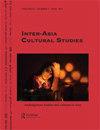Transnational media production from the margins of “Cultural China”: the case of Singapore’s media producers
IF 0.3
4区 社会学
Q4 ANTHROPOLOGY
引用次数: 0
Abstract
The rise of the PRC as a producer of mass culture marks a reconfiguration of “East Asian Popular Culture” as media producers are now actively seeking opportunities to enter the Mainland Chinese market. While the implications of this trend for the media industries of Taiwan and Hong Kong are well-documented, Singapore’s participation in this cultural formation remains comparatively understudied. Often deemed by their Chinese counterparts as lacking in sociocultural capital and production niches, why and how do Singapore’s producers navigate their ventures into the Mainland Chinese market? Drawing on interviews with key Singaporean producers situated in different locales (Singapore production companies venturing into China; Singaporean productions reproduced for the Chinese market; and individual Singaporean producers exploring such opportunities), this article teases out the processes of marginalization and power as understood and experienced by those residing in the margins of “Cultural China.” By exploring what these mean for Singapore’s producers as they navigate cultural capital, power and identity from the margins of an emerging cultural superpower, this article interrogates relations between global, national and regional forces as manifested in producers’ subjectivities in the era of the “rise of China.” My thesis is that the experiences of these transnational Singaporean media producers are characterized by a paradoxical combination of the de-nationalizing of production and re-politicizing of national imaginations, the everyday manifestations of which continually rehearse and further engender tensions between the self and the other.“文化中国”边缘的跨国媒体生产:以新加坡媒体生产商为例
中国作为大众文化生产者的崛起标志着“东亚流行文化”的重新配置,媒体生产者正在积极寻求进入中国大陆市场的机会。虽然这一趋势对台湾和香港媒体行业的影响有充分的文献记载,但新加坡参与这一文化形成的研究相对较少。新加坡生产商通常被中国同行视为缺乏社会文化资本和生产利基,为什么以及如何将其企业进入中国大陆市场?通过对位于不同地区的新加坡主要生产商的采访(冒险进入中国的新加坡制作公司;为中国市场复制的新加坡作品;以及个别新加坡制作人探索这样的机会),本文梳理了居住在“文化中国”边缘的人所理解和经历的边缘化和权力的过程。通过探索这些对新加坡生产者来说意味着什么,因为他们在新兴文化超级大国的边缘驾驭文化资本、权力和身份,本文质疑全球、国家和地区力量之间的关系,这些力量在“中国崛起”时代表现为生产者的主体性。我的论点是,这些新加坡跨国媒体制作人的经历具有自相矛盾的特点,即生产的非国家化与国家想象的再政治化,其日常表现不断地排练并进一步引发自我与他者之间的紧张关系。
本文章由计算机程序翻译,如有差异,请以英文原文为准。
求助全文
约1分钟内获得全文
求助全文
来源期刊

Inter-Asia Cultural Studies
Multiple-
CiteScore
0.90
自引率
20.00%
发文量
22
期刊介绍:
The cultural question is among the most important yet difficult subjects facing inter-Asia today. Throughout the 20th century, worldwide competition over capital, colonial history, and the Cold War has jeopardized interactions among cultures. Globalization of technology, regionalization of economy and the end of the Cold War have opened up a unique opportunity for cultural exchanges to take place. In response to global cultural changes, cultural studies has emerged internationally as an energetic field of scholarship. Inter-Asia Cultural Studies gives a long overdue voice, throughout the global intellectual community, to those concerned with inter-Asia processes.
 求助内容:
求助内容: 应助结果提醒方式:
应助结果提醒方式:


